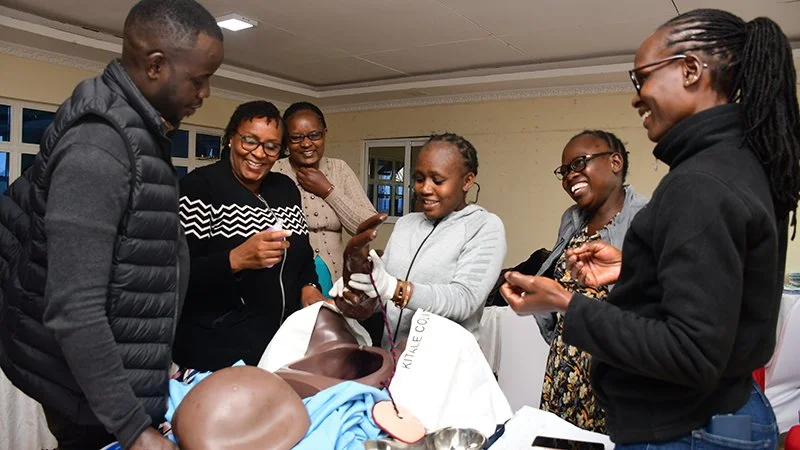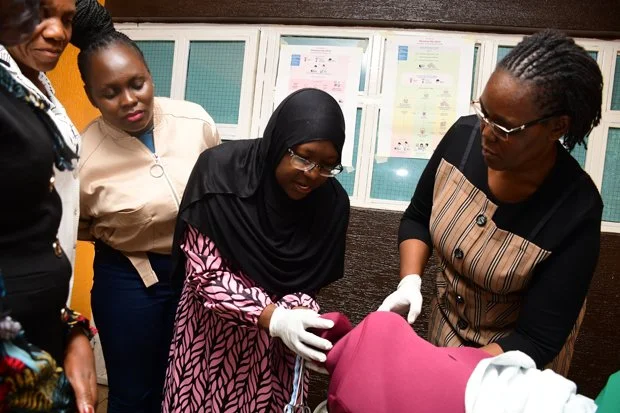Strengthening Emergency Maternal and Newborn Care in Trans Nzoia County
USAID AMPATH Uzima conducted a two-week Emergency Obstetric and Newborn Care (EmONC) mentorship training in Trans Nzoia County in collaboration with the Ministry of Health. The training took place in late July and early August and brought together various cadres of healthcare providers from Wamalwa Kijana Teaching and Referral Hospital (WKTRH).
This strategic initiative aimed to enhance the capacity of frontline health workers to deliver essential emergency obstetric services to address major causes of maternal and neonatal morbidity and mortality in the county. The mentorship was designed to equip participants with the necessary skills, knowledge and attitudes to perform their duties effectively; standardize service provision across facilities; and create a sustainable model for ongoing skills development.
The training of 60 staff at WKTRH forms part of a broader county goal to train 120 healthcare providers on EmONC. WKTRH was prioritized due to its status as a referral hospital, the heavy workload placed on skilled birth attendants (SBA), and high maternal mortality rates identified during audits. While WKTRH served as the starting point, the training ultimately seeks to reach all targeted staff across the county, with ongoing follow-up through on-site mentorship, dependent on available funding.
The program followed a competency-based, hands-on approach, beginning each session with a focused lecture before moving into breakout stations where participants engaged in practical demonstrations, scenario-based problem-solving and peer-to-peer learning. More than 90% of the sessions were practical, with participants rotating through stations that covered key topics such as the management of postpartum hemorrhage, preeclampsia, eclampsia, antepartum hemorrhage, and neonatal and maternal resuscitation.
Healthcare providers successfully completing the training included medical officers, a medical officer intern, a clinical officer, a nurse anesthetist, and nurses, with 100% attendance across both weeks. They were supported by eight dedicated faculty members who ensured an interactive and impactful learning experience.
“The training was good and very educational,” said one attendee. “I personally enjoyed it and gained a lot.”
Another added, “Before EmONC I used to enter the labour ward like a cat, but with the new skills and grace of God, I see myself as a lion in labour ward/maternity."
The participants undertook pre- and post-test assessments which demonstrated a marked improvement after the training. In closing, the trainers thanked the teams for their diligence and commitment in undergoing the complete training for which they will receive certification.
The participants also expressed appreciation for the engaging and practical nature of the sessions, noting that the delivery enabled them to better understand and apply key concepts. Faculty feedback highlighted the strong teamwork among trainers and the high level of enthusiasm from participants, supported by the availability of most essential mannequins and equipment for the exercises.
As a way forward the facilitators recommended supporting trained participants to provide ongoing mentorship in their departments, organizing additional EmONC training within and beyond the county, investing in better training resources, strengthening post-training support, and monitoring long-term impact. The success of this mentorship goes a long way in advancing maternal and newborn health in Trans Nzoia County.





































